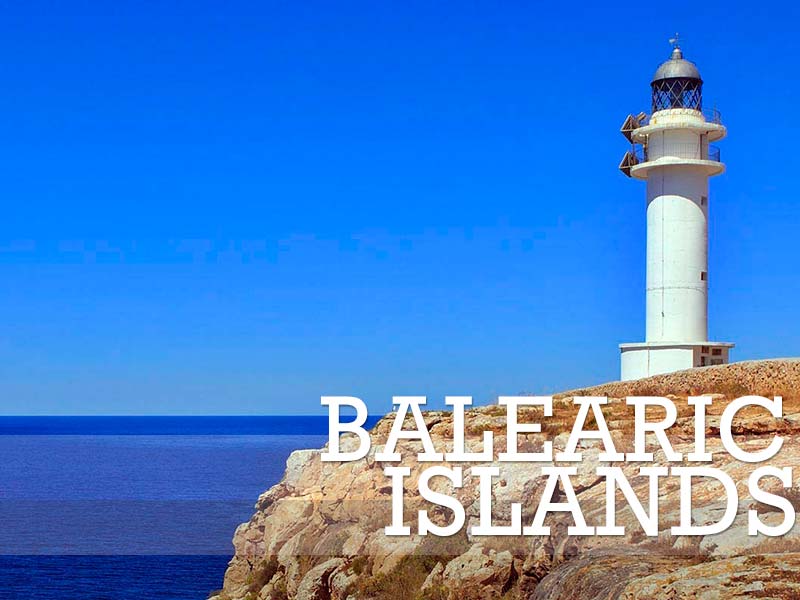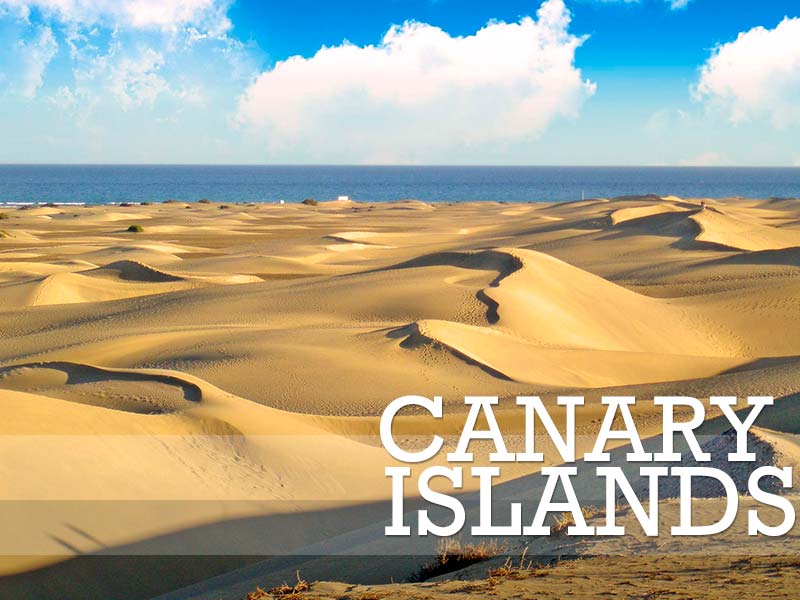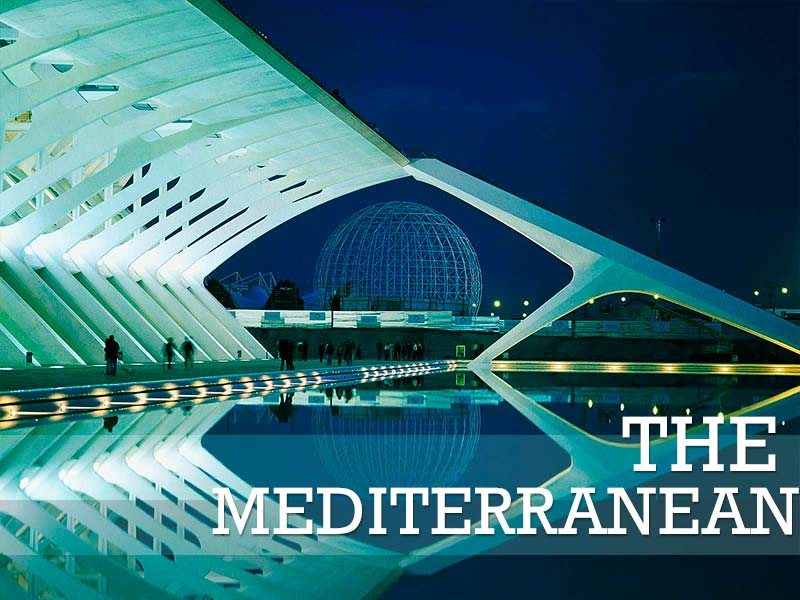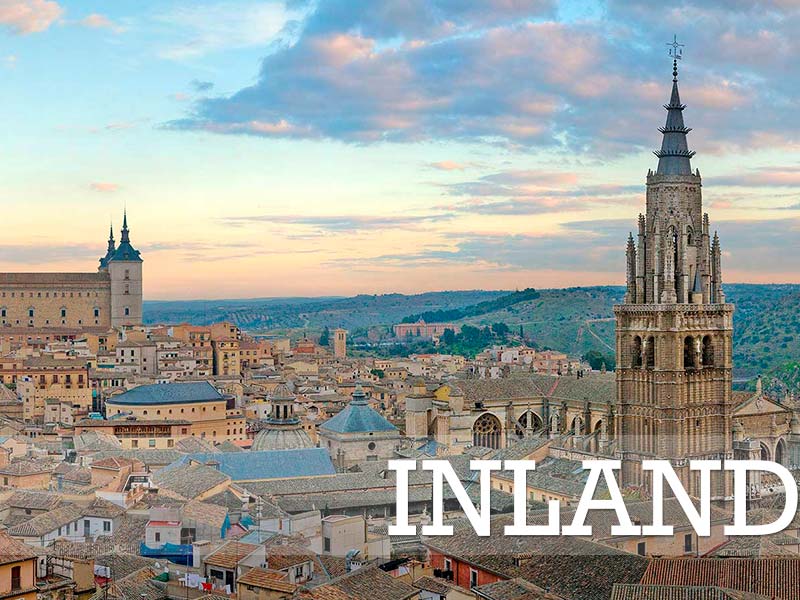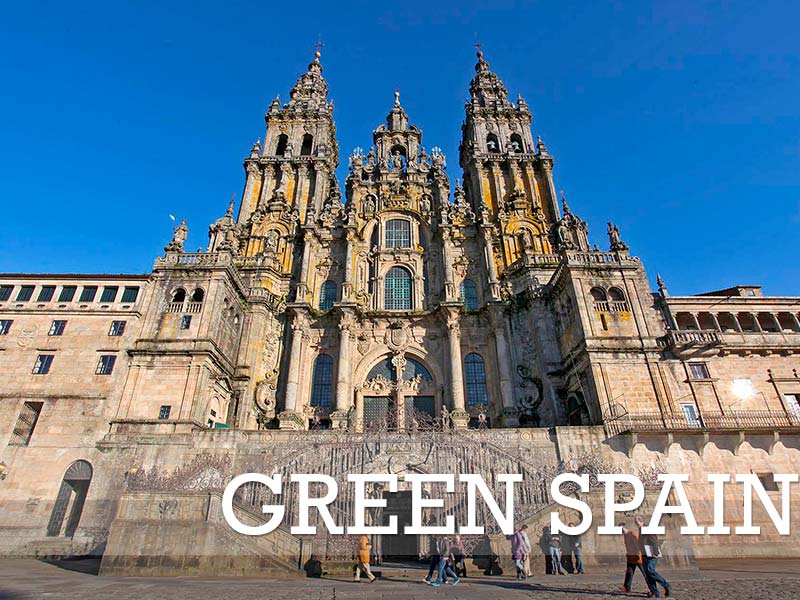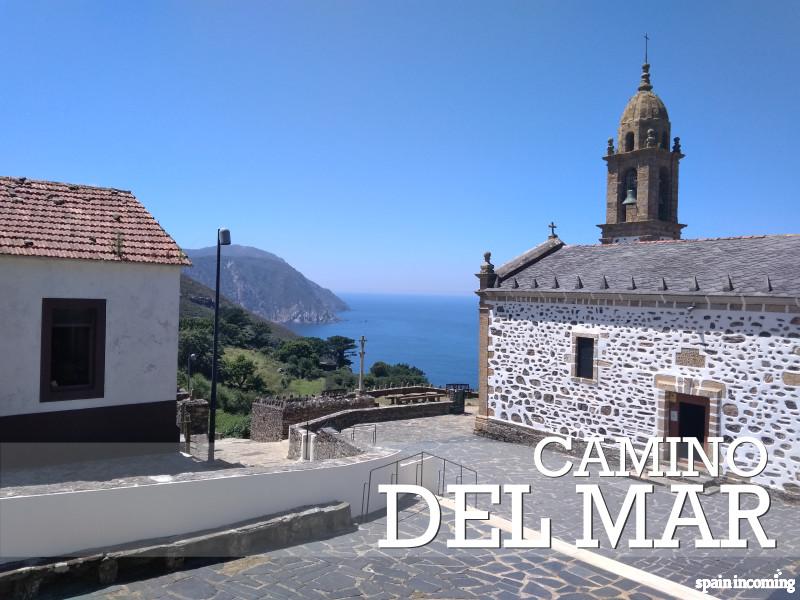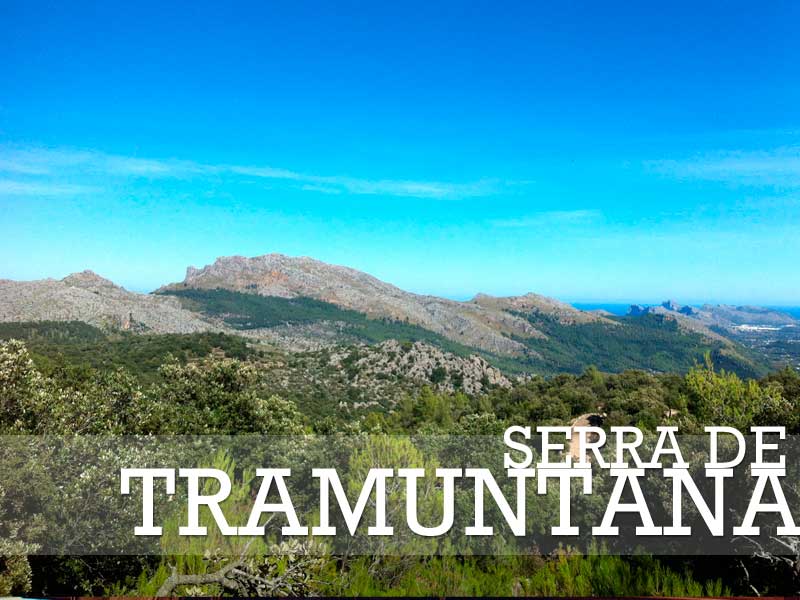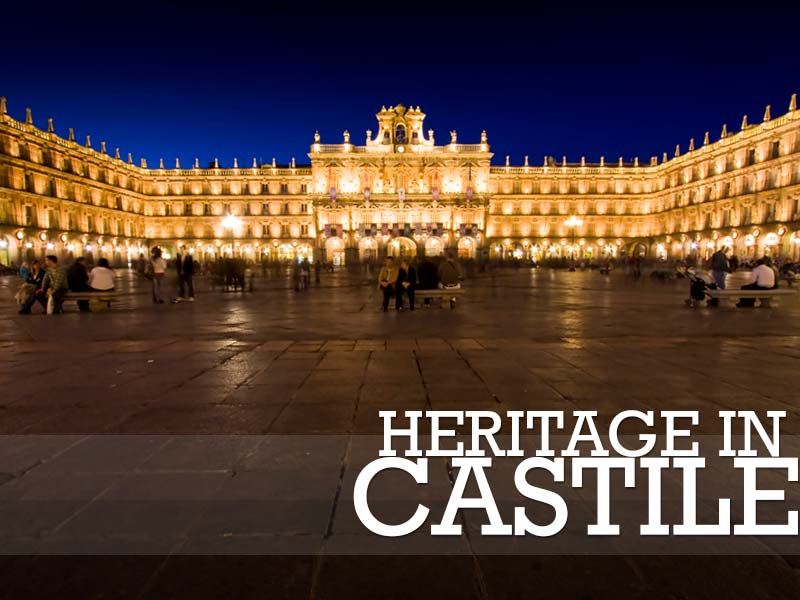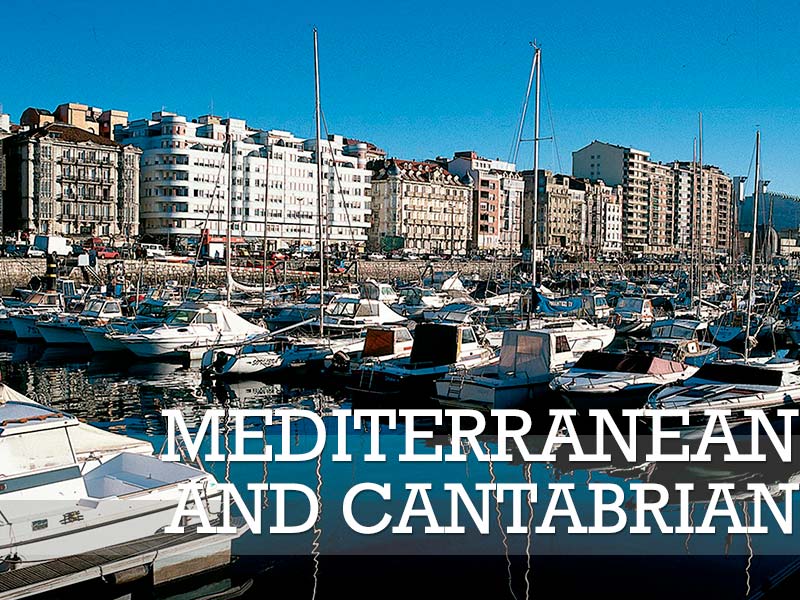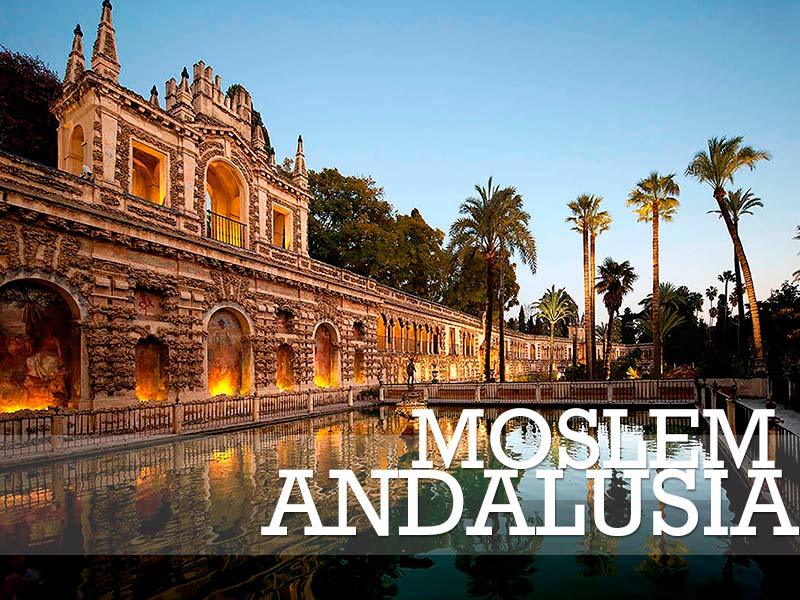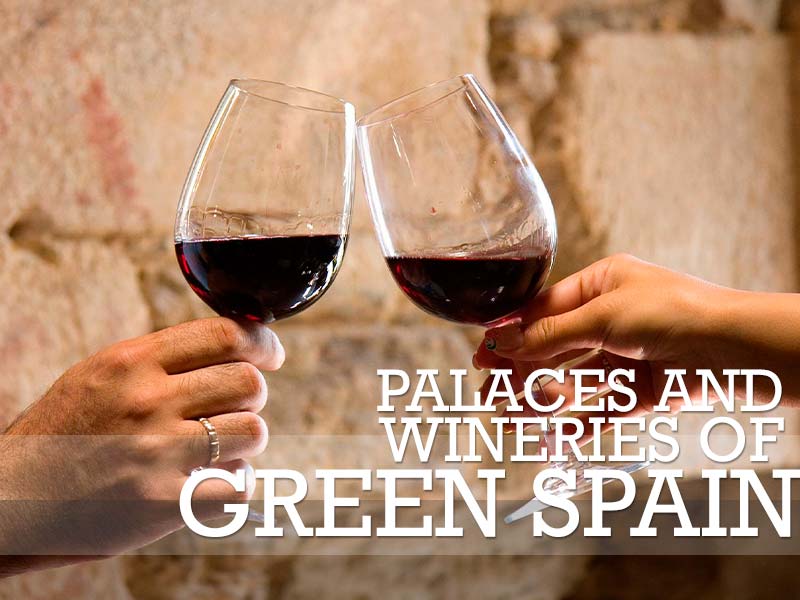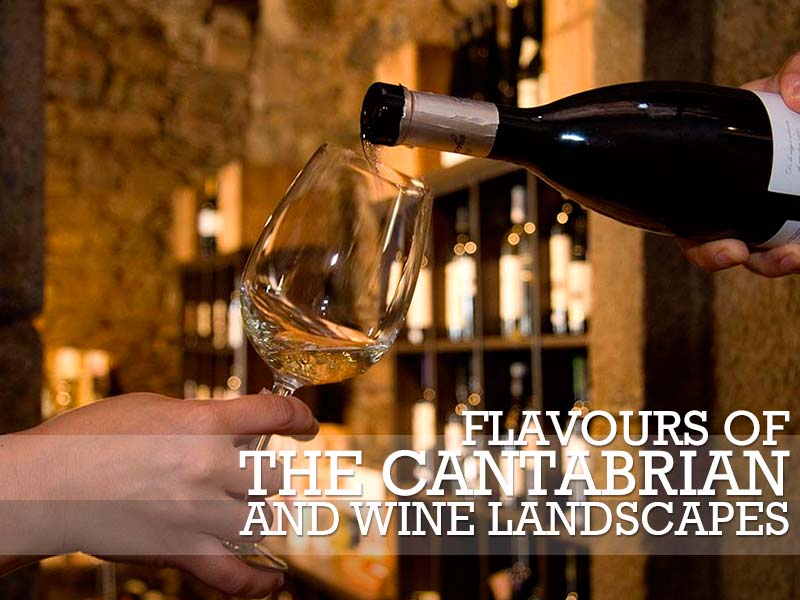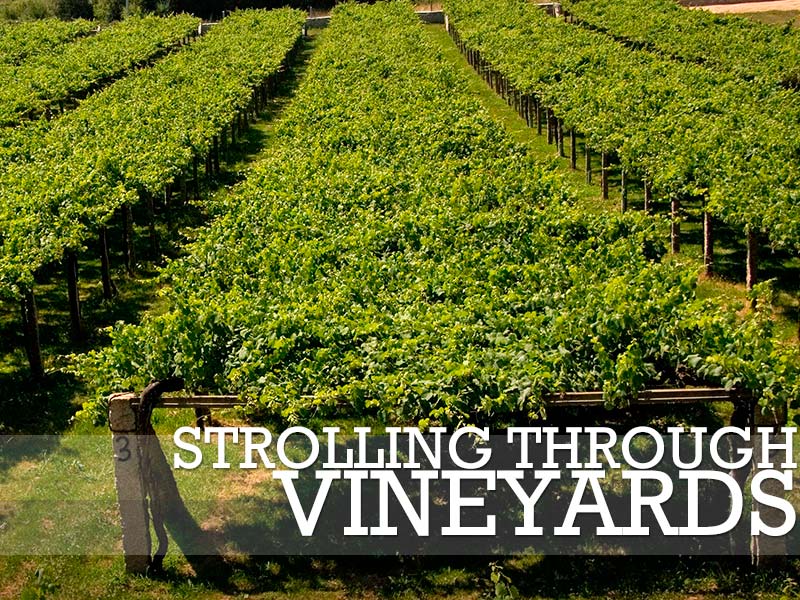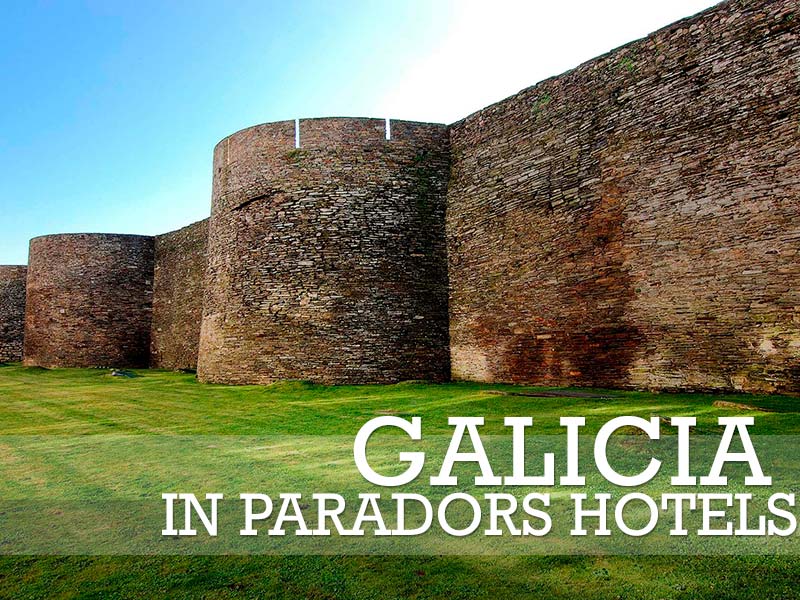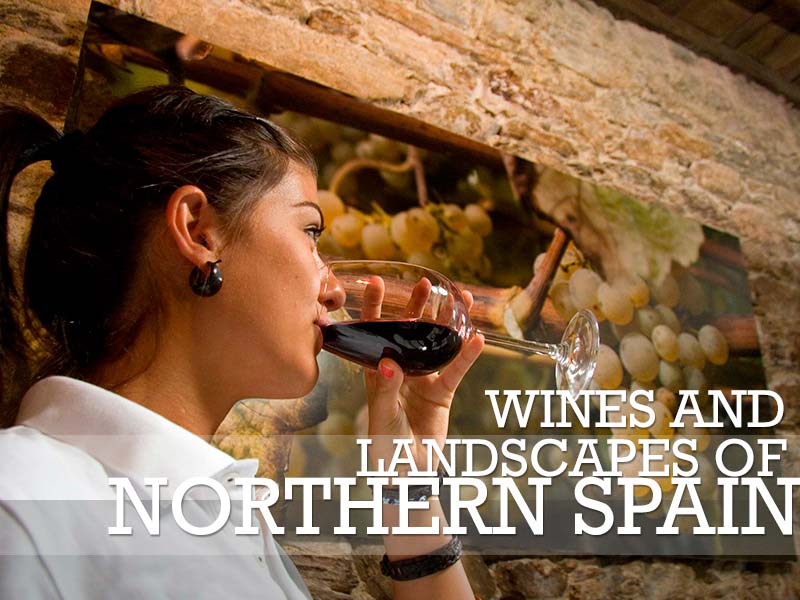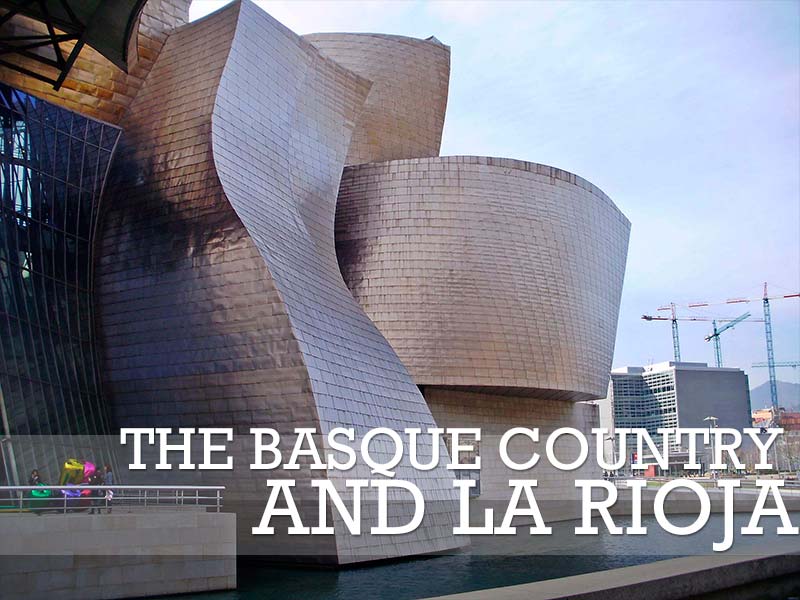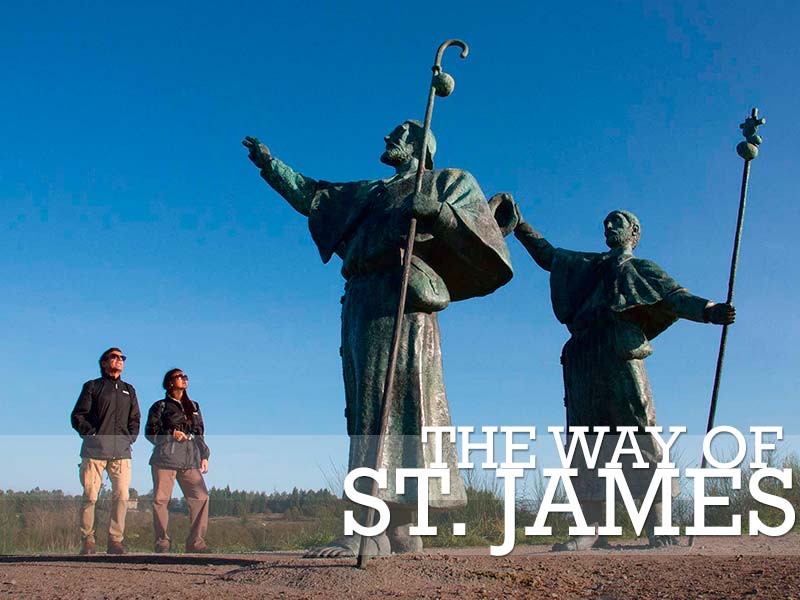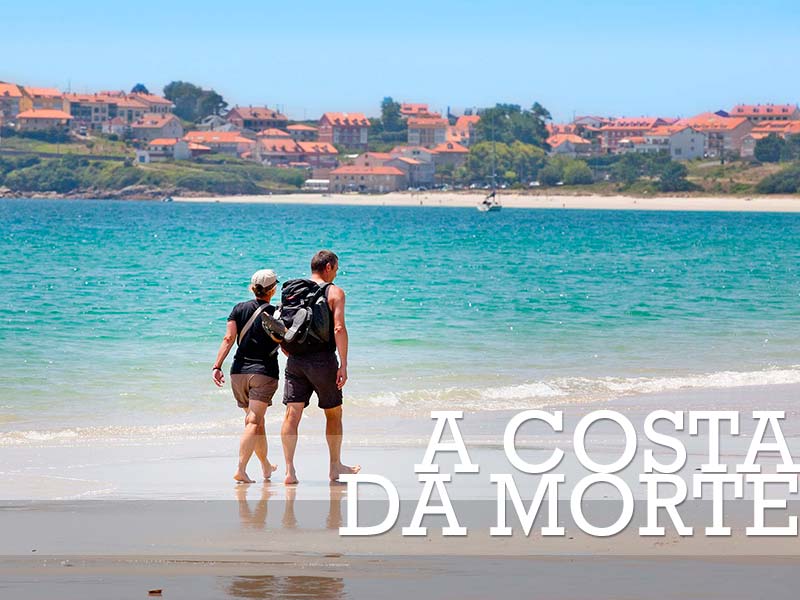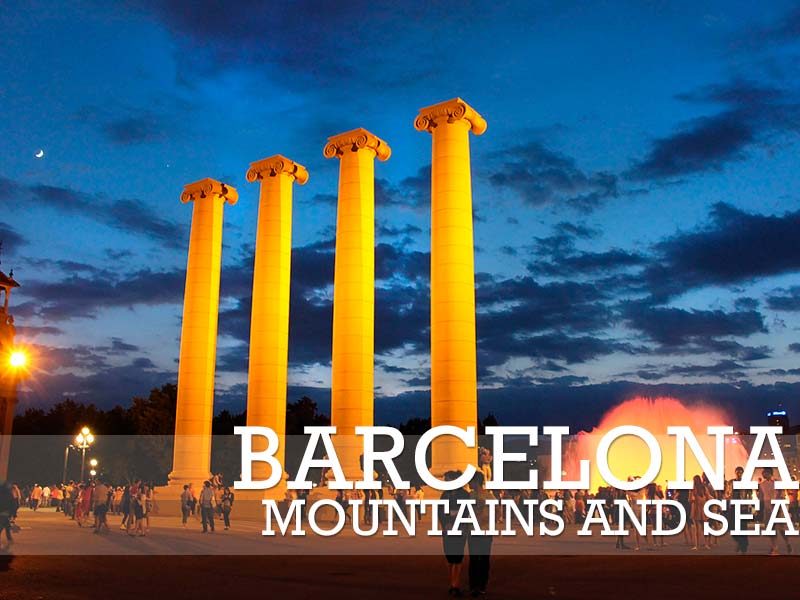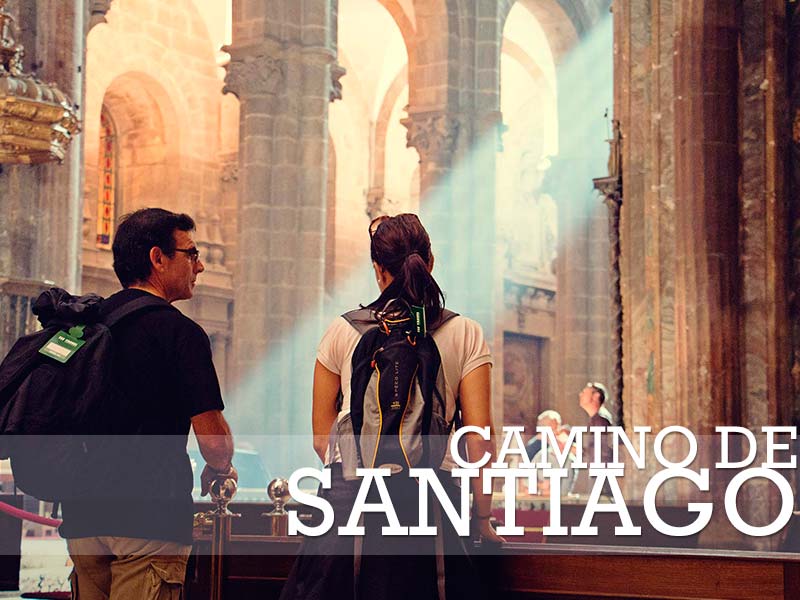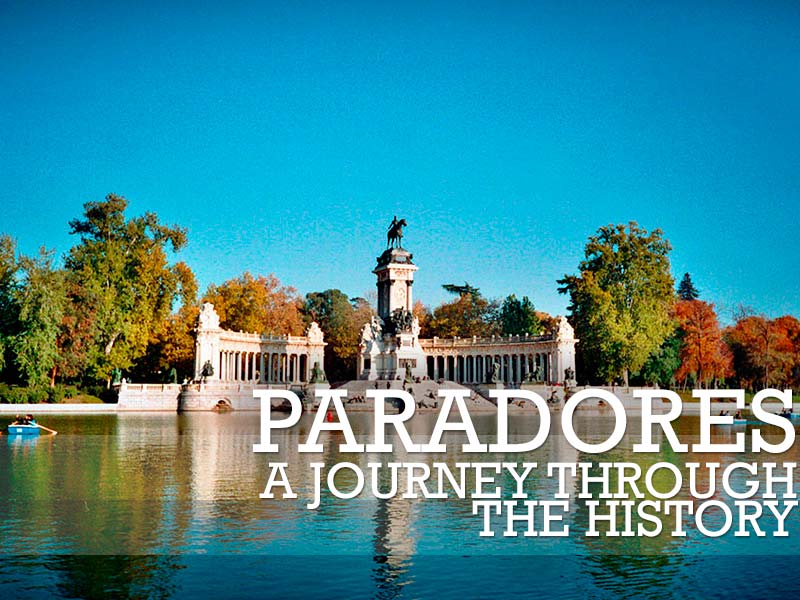
SPAIN
Spain and Portugal make up the Iberian Peninsula (the Roman Hispania), the most western peninsula in southern Europe.
This geographical location near Africa with one coast on the Atlantic and another on the Mediterranean affects the variety of its climate and, in the past, the arrival of very different cultures. This gives rise to a landscape, cultural and linguistic variety of which many visitors (albeit fewer and fewer) are aware. Indeed, we can say that Spain is lush and green and, in the same breath, that it is a dry country; we can speak about the Atlantic diet, with its fish, and the Mediterranean diet, with its vegetables; about the past of old Moorish Spain and about Jewish and Christian Spain; about pro- and anti-bullfighting… What we mean is that, beyond the idea of being either a supporter of Real Madrid or Barcelona (if we are to trivialise matters) and the old cliché that identifies us with Flamenco, paella, sunshine and bullfighting, Spain offers many alternatives that do not stop at the very healthy form of sunshine and beach tourism, which is also very important. Those who follow the Way of St James in the North (in reference to a relatively well-known route) come across very little of this (or none at all) on their way. However, their experience is very gratifying.
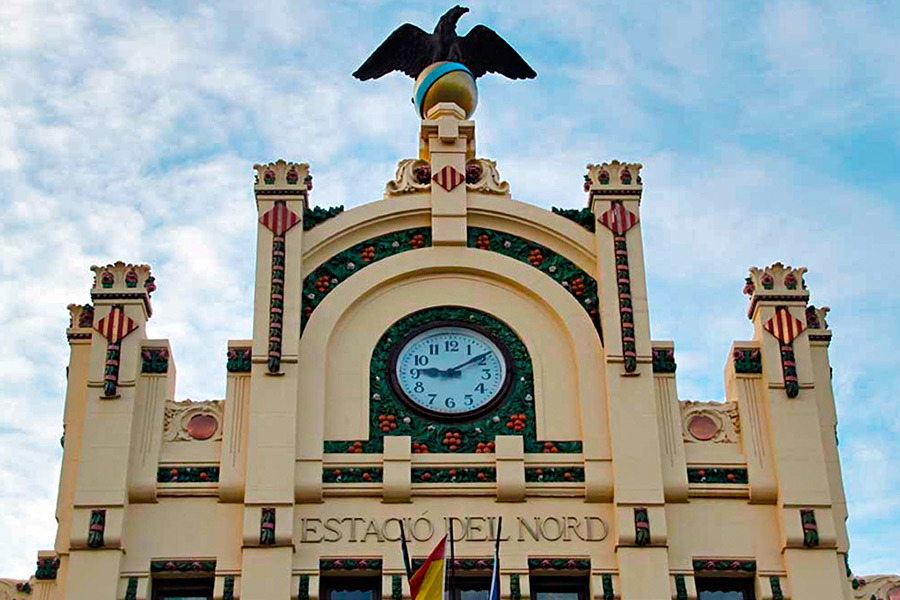
TIME ZONE
Greenwich Mean Time (GMT)
As far as time zones are concerned, Greenwich Mean Time (GMT) plus one hour in winter or two hours in summer is applied across the Peninsula and the Balearic Islands. The Greenwich Mean Time plus one hour in summer is applied in the Canary Islands, which means that there is a one-hour difference with the Peninsula and the Balearic Islands.
CUISINE
One of Spain’s main attractions is its tasty cuisine.
It is not possible to speak of any cuisine in particular in Spain, since there are four regions: the North, the Mediterranean, the central plateau and the South. Of course, one very common option is ‘ir de pinchos’, which consists of going to one bar after another to enjoy the tapas served in each one.
Of the 69 Designations of Origin of wine in Spain.
We highlight Rioja, Ribera del Duero, Albariño and Penedés, which are well-known internationally, together with Cava, Txacoli and cider. Sherry wine comes from Andalusia and is also well-known internationally.
FIESTAS
Spain has maintained its traditions.
Spanish people take part in the fiestas that are organised across the country for religious, traditional, gastronomic or commercial reasons. Indeed, Spaniards always find something to celebrate. San Fermines, Tomatina, San Juan, Fiestas de Verano, Holy Week, Carnival, Fallas de Valencia…, As different as they are varied, these celebrations are clear examples of the country’s variety.
CUSTOMS
Mealtimes are very different from other countries:
Restaurant lunches are served from 13.00 to 15.30 and dinner is served from 20.30 to 23.00. When choosing Spain as a tourist resort, it is very important to know about its times and other customs, such as the siesta and street life, because the change can often be very difficult for travellers when they arrive.
There is always a lot happening in the streets, but the special place for most people is the bar. Visitors to Spain are often surprised that public establishments close for a couple of hours or more around midday and that Spanish people usually go out until later at night.

SELECT SPAIN REGION
LANGUAGES
To set off on the right foot, it is useful to know that four languages are spoken in Spain.
Spanish, or Castilian, which is the official language across the entire country, with its own particular variations in Andalusia and the Canary Islands; Catalan (with the variations of Valencia and the Balearic Islands);Euskera, or Basque, whose origin is very remote and unknown; and Galician, which is similar to Portuguese. These four languages are co-official, together with Spanish, in their respective autonomous communities.
CLIMATE
The predominant climate in Spain is a warm Mediterranean climate, with dry summers and winters and balanced temperatures. Spain has more than 3000 hours of sunshine a year. Therefore, it comes as no surprise that it is one of the warmest places in Europe.
Traditionally, there are four main climates in Spain: oceanic (from the Pyrenees to Galicia); Mediterranean (the predominant climate in Spain since it stretches from the Mediterranean coast to the interior of the Peninsula and the Balearic archipelago); subtropical (the Canary Island archipelago); and mountain (large mountain ranges such as the Pyrenees, the Central Range, the Iberian Range, the Penibética Range and the Cantabrian Range). Each one influences a clearly defined geographical area. Spain is one of the warmest countries in Europe.
Here, special mention must be made of the Canary Islands. Their peculiar location off the coast of Africa means a gentle climate with mild temperatures (an annual average of 22°C on the coast) with little difference between daytime and nighttime. However, the main feature of the Spanish climate is variety, also caused by the country’s diverse geography.
If you travel to the north, to the Cantabrian coast, you will find a climate that is damp and warm, with gentle winters and summers in which temperatures usually stay below 25°C.In the higher regions of the country, the climate becomes harsher and snow can be found from the beginning of winter to the end of spring. This is the case of the Pyrenees, Sierra Nevada, the Central and Iberian Ranges and the Cantabrian Range, among others.
LANDSCAPES
There are many mountain ranges in Spain and they take up almost half of the national territory.
The land in Spain is characterised by altitude and the country is more mountainous than the rest of Europe. The highest ranges are the Pyrenees and the Bético Mountains.
The Spanish coasts look on to the Atlantic Ocean, the Cantabrian and Mediterranean Seas and offer a wide variety of beaches, cliffs and estuaries.
BEST TOURS IN SPAIN
CURRENCY
Since 1986, Spain has been a member of the European Union and its traditional currency (the peseta) was replaced in 2002, as in many countries of the EU, with the euro, which is equivalent to 166.386 of the old pesetas.

RELIGION
The great majority of the population is Catholic.
However, religious freedom is guaranteed by the Spanish Constitution. Other religions in Spain include Moslem, Jewish, Protestant and Hindu, all of which have places in which they hold their ceremonies.
POLITICS AND HISTORY
Spain has been a social democracy with a political system based on a parliamentary monarchy since 1978.
The President of the Government is elected by the Congreso de los Diputados (the lower house of parliament), which is renewed every four years by means of democratic elections. The Administration is divided into seventeen autonomous communities, some of which have their own official language, as we have already mentioned.
HERITAGE
Spain is the second country in the World in the number of UNESCO World Heritage Sites.
The list includes cave paintings, old towns, natural reserves, parks and monuments. This variety in the type of site explains the tendency to use the term ‘cultural asset’, which is more modern and international. They all stand out as unique and exceptional and because they deserve to be protected for future generations.
Fashionable Spain
Fashion is one of the most important sectors for the country’s economy.
Spanish firms have focused successfully on internationalisation as a base for their growth policies, together with exclusive designs and an excellent price/quality ratio. This is the case of the Inditex Group (Zara, Pull & Bear, Massimo Dutti, Stradivarius, Bershka, Oysho), Punto Fa (Mango), Corte Fiel (Women’s Secret, Pedro del Hierro), Roberto Verino, Caramelo, Andrés Sardá, Custo Barcelona, Pronovias, Rosá Clará, Desigual, Hoss Intropia, Armand Basi, TCN, Manolo Blahnik, Tous, Camper… The number of ‘made in Spain’ companies grows each day and Zara is not the only firm to have found its place on foreign markets; Spanish fashion companies are internationally successful.

